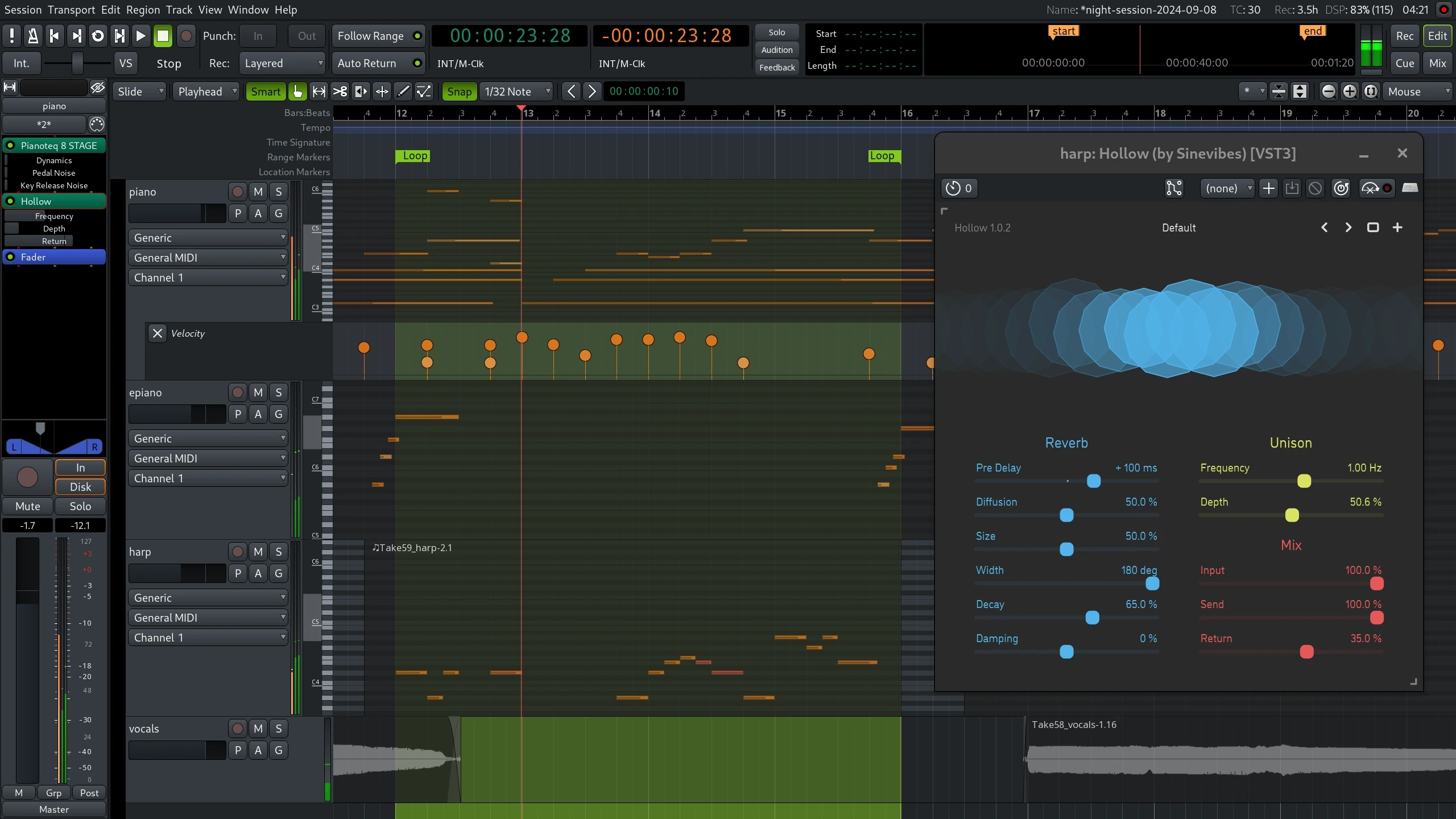Paul Davis has introduced Ardour 8.8, the newest iteration of this robust and favored open-source digital audio workstation, which is available for Linux, macOS, and Windows platforms, free of charge.
This latest version arrives just two weeks following Ardour 8.7. It serves as a crucial hot-fix update focused on resolving several significant issues, including the playhead moving outside the loop range, the rounding of sample-rate display for 22.05kHz, playback issues related to sessions with low sample rates, XML syntax corrections for the MIDI binding map of AKAI MPK mini mk3, and a potential deadlock situation when utilizing PSL extension for sends.
This release also rectifies issues with MIDI Clock output times by employing the precise instruction to retrieve tempo at a given position, as well as addressing LV2 plugins with GUIs that rely on a “changed” signal, problems with instruments whose names include illegal path characters, and underruns during looping, locating, and altering region content. Additionally, it improves interactions with the snapshot list and enhances the Playlist::fade_range functionality for multiple ranges.
Furthermore, Ardour 8.8 introduces some enhancements, such as a new feature that allows users to name newly created MIDI tracks from SMF using just the corresponding SMF track name, along with support for building the sources on the latest versions of macOS.
With this latest update, Ardour has made significant improvements. It no longer sends touch events for all mapped controllers if one is touched for generic MIDI. Additionally, it provides workarounds for plugins that ignore ContextInfo::kSendCount, employs a dedicated thread for starting export timespans, and prevents pixel-level shifts in waveforms during the splitting or trimming of regions.
Moreover, Ardour now mandates that user colour theme files must be versioned, and it has also restricted the alteration of the loop range during recording. Finally, in Ardour 8.8, the overdubbing behavior in non-layered mode has been modified to stop the misassignment of regions to incorrect groups.
For further information, take a look at the changelog. You can download Ardour 8.8 from the official site as a source tarball, which you will need to compile for your GNU/Linux distribution. Alternatively, if compiling isn’t your preference, Ardour is also available for installation as a Flatpak app from Flathub or through your distro’s repositories as a native package.
Image credits: Paul Davis/Ardour
Last updated 4 seconds ago
